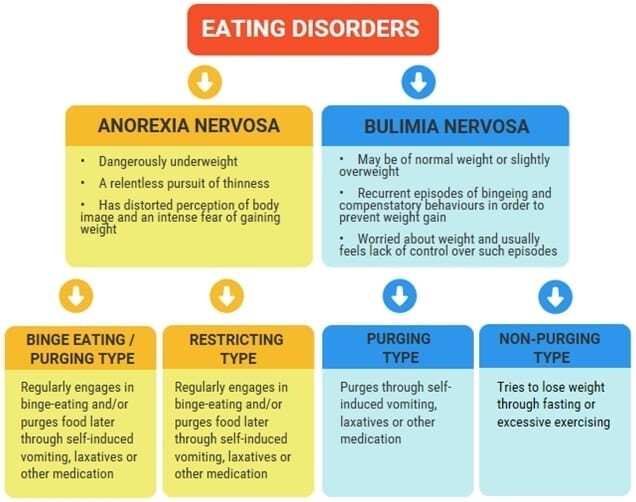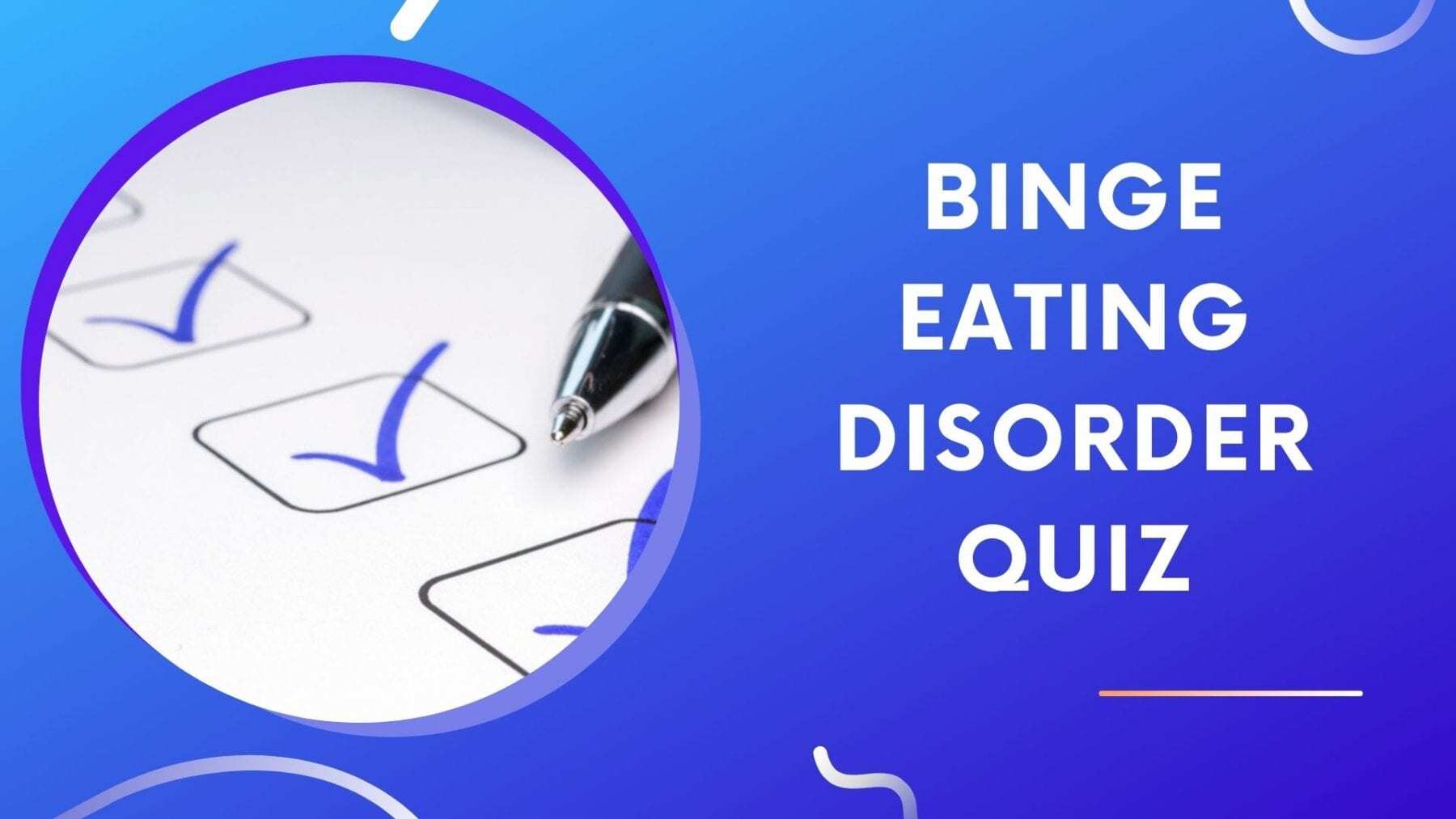Would you like to take a quiz to see if you have Binge Eating Disorder?
This quiz will let you know whether you are binge eating, which is important because you can often reach full recovery with proper treatment.
Since binge eating is associated with obesity, diabetes, heart attacks, fatigue, and a whole host of other eating symptoms, then you don’t want this problem to persist longer than it has to!
If you take the quiz down below then you’ll be in a much better position to understand if you even have binge eating disorder and then get help if you do.
Plus, there are a few common confusions that we’ll address too. Confusions like:
- The difference between overeating and binge eating
- Difference between bulimia and binge eating
- Medical definition of binge eating disorder
Keep reading to learn more and then take the quiz at the bottom of this short post!
Why Take A Binge Eating Quiz?
There are a few common reasons why you may want to take a binge eating disorder quiz.
Reason #1 You know you or a loved one has a problem with overeating, but you aren’t sure about the severity of the eating problem.
You overeat, but so do a lot of other people.
We’ve all heard statistics saying that 50-70% of Americans are overweight. But surely surely not every person who has an extra portion has Binge Eating Disorder!
How do you tell the difference between overeating and Binge Eating Disorder? This quiz below can help.
Reason #2 You are curious about the difference between bulimia and binge eating.

Both Bulimia Nervosa and Binge Eating Disorder are clinical eating disorders.
However, bulimia is where you overeat and then compensate. Compensation can take a variety of forms including:
- Throwing up
- Using laxatives
- Over exercising
Binge Eating, on the other hand, is just overeating along with some other criteria, but with no purging or compensation.
If you’re wondering about anorexia, then you are correct that anorexia is another type of eating disorder.
In fact, there are over 6 types of eating disorders recognized by mainstream medical criteria.
However, of these 6 types, it’s only bulimia and binge eating where someone eats too much, as opposed to eating behaviors where someone eats too little as in anorexia.
Reason #3 You’ve heard about Binge Eating Disorder and you want confirmation or at least more information about the official definition.
The quiz below will ask 8 questions about your eating habits. These 8 questions come from the medical definition of Binge Eating Disorder.
Here is the medical definition of Binge Eating Disorder, according to the DSM-5.
(Please take note of this definition because the Binge Eating Disorder quiz at the bottom of this post will ask you the same questions with slightly different wording!)
Two Main Criteria of Binge Eating Disorder:
- You eat large amounts of food that are significantly bigger than what other people would eat.
- You feel a lack of control when you eat, like you cannot stop no matter what.

Both of these two key medical criteria must be present to be diagnosed with Binge Eating Disorder.
For example, if you eat normal amounts of food then you do not meet the medical criteria for Binge Eating Disorder.
The Difference Between Overeating and Binge Eating Disorder
While many people overeat, the difference with the people who have Binge Eating Disorder is that they feel like they lose control.
Oftentimes when people lose control, they will show other symptoms as well.
The medical definition of Binge Eating Disorder means that you must also show three of the following five symptoms, in addition to the two criteria listed above.
- You eat really fast, way faster than normal.
- Your stomach hurts after you eat because you ate way too much.
- You’ll eat even if you aren’t hungry.
- The amount of food you eat is downright embarrassing, so you eat alone and in secret.
- You feel disgust, guilt and shame after your done bingeing.
Again, many people who overeat don’t feel guilty afterwards, but with Binge Eating Disorder guilt and shame are experienced after eating and losing control.
Oftentimes a person will feel so much shame after eating that they will start to ruminate.
Rumination is where you constantly think about your mistakes. A feeling of being trapped in your head is very common with any eating disorder.
Unfortunately, rather than treating the underlying symptoms of binge eating, a person will oftentimes try even harder next time to eat less food.
Eventually this person will end up binge eating again and then they will blame themselves yet again!
This starts a horrible cycle of binge eating, feeling guilty afterwards and trying again to eat less food.
Alright enough information, are you ready to take the quiz?
Take The Binge Eating Disorder Quiz
After you take the quiz you’ll have an opportunity to enter your email for more information about Cognitive Behavioral Therapy.


